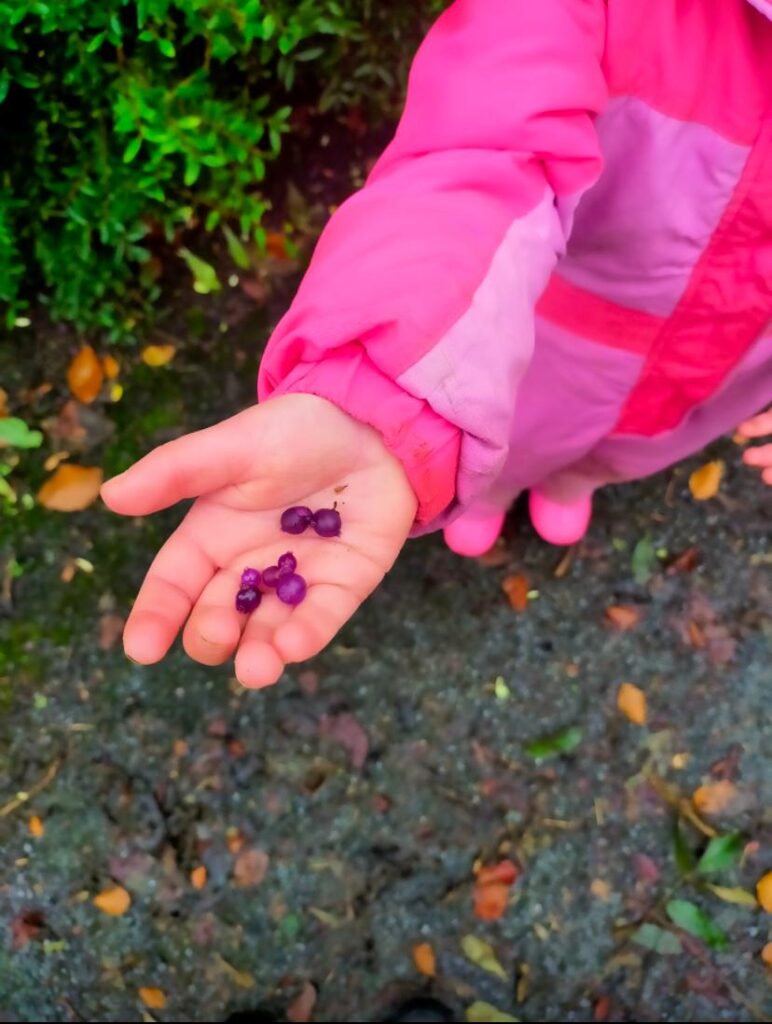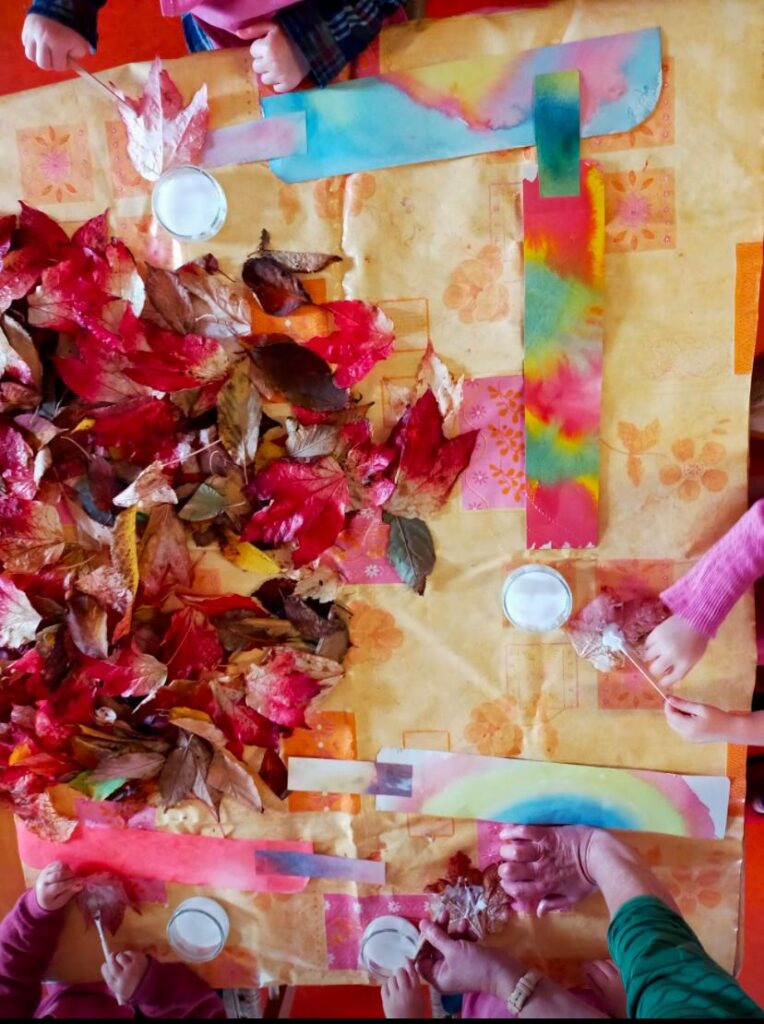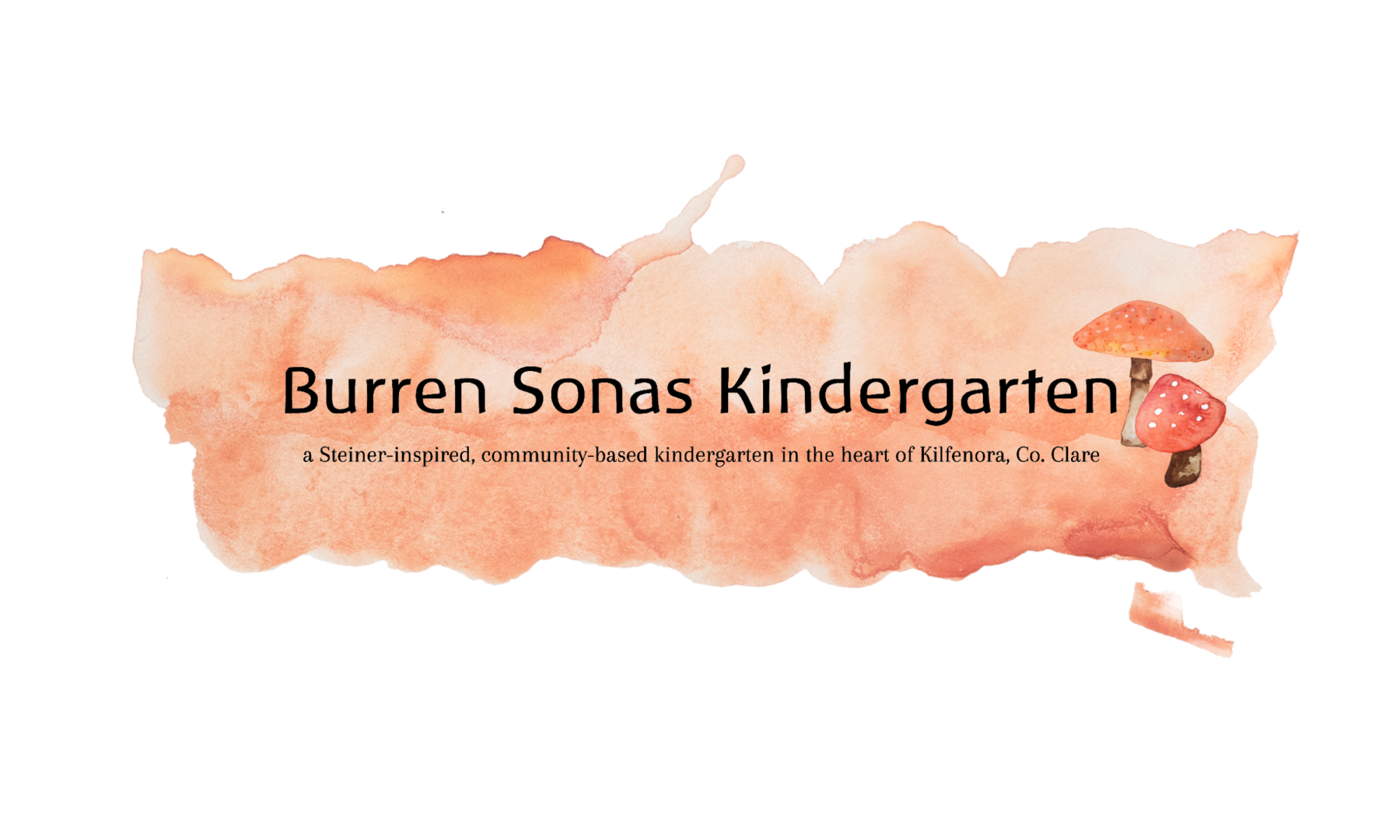Steiner Waldorf Approach
The kindergarten uses the Steiner Waldorf approach which encourages children’s healthy development at their own pace and in a natural environment.
Our Kindergarten is based on the philosophy of Rudolf Steiner. One of the main principles is encouraging learning through imitation. In the first seven years children are learning mostly by imitating the people around them and through their interactions with their environment. In a Waldorf kindergarten the whole child is supported in all the aspects of his/her development, including spiritually.
Focal points of Rudolph Steiner Philosophy
Rhythm and Repetition
A rhythmic and regulated routine of a day, a week, and the seasons gives children feelings of safety and security. They learn what to expect and are free to create within a structure. This fosters confidence and strength within the children, and gives them the experience of adapting to the natural rhythms of the world in which they live.
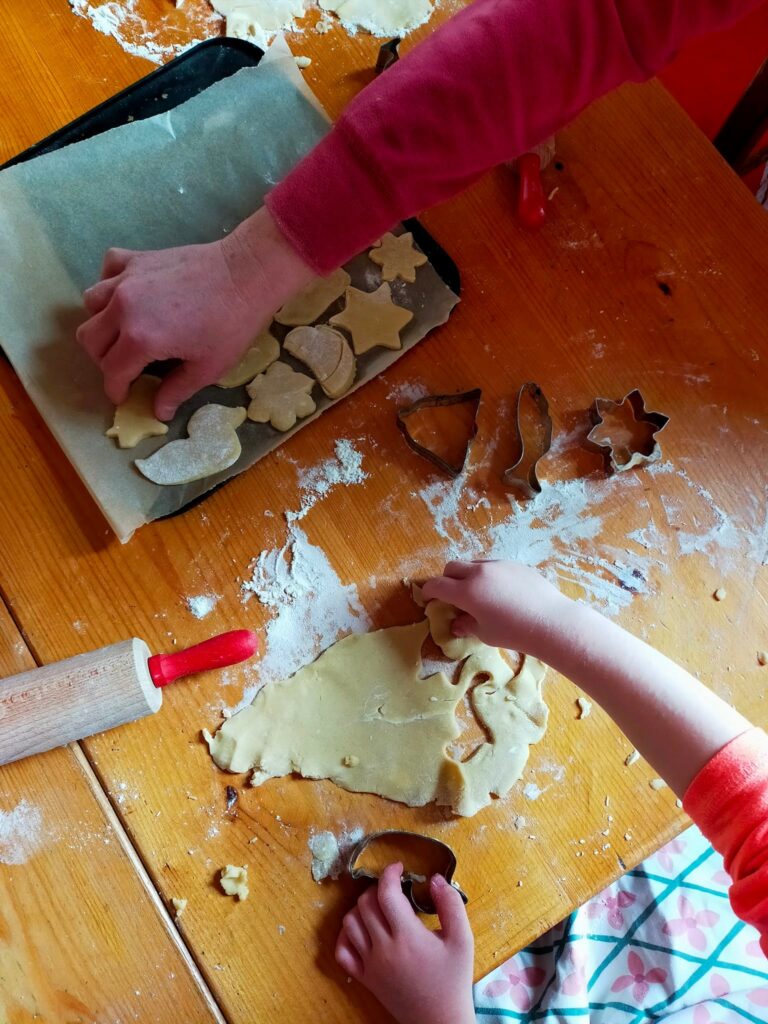
Senses
The children should be given the opportunity to investigate and discover the real world with all of their senses. Their senses are developed through touching and playing with natural textures and shapes, such as wood, wool, shells, sand, and stones. Our kindergarten is designed with harmonious elements such as wooden furniture and toys, and natural materials to provide warmth and coziness. The harmonious environment is further created by using gentle voices, natural light, and the beauty of a nature table.
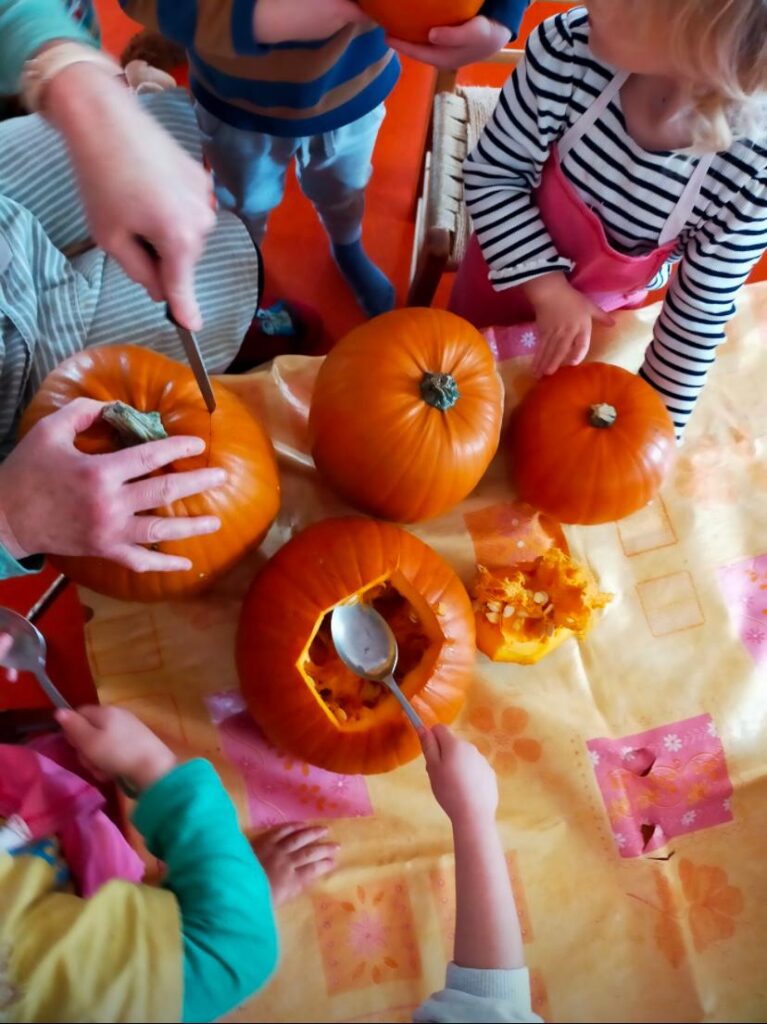
Language
Each child learns to communicate at her/his own pace. They need the inspiration of natural human voices to develop speech properly. This is the reason why daily songs, rhymes, and stories play an important role in language development. These spoken and sung words are used to connect children to the natural world around them and the changing of the seasons.
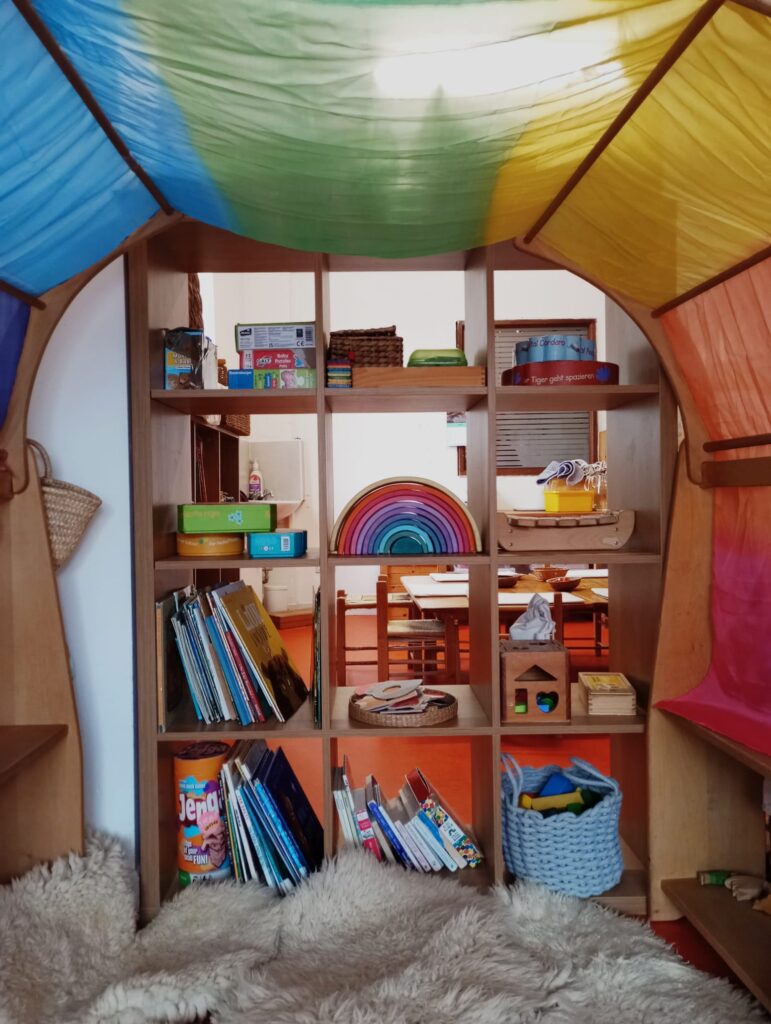
Imagination & Free Play
The imagination of the child should be supported in all aspects of kindergarten. This is not only through making crafts or painting. Imagination in the Steiner Kindergarten is stimulated by the simple and open ended play elements, such as silk cloths, wooden logs, simple dolls, wooden figures, or natural objects.
Allowing space for free play is an important aspect of kindergarten. Through free play and with the open-ended toys provided, the children dig deeply into their imagination and are also then able to process their day-to-day experiences, which often show up in the form of imitation.
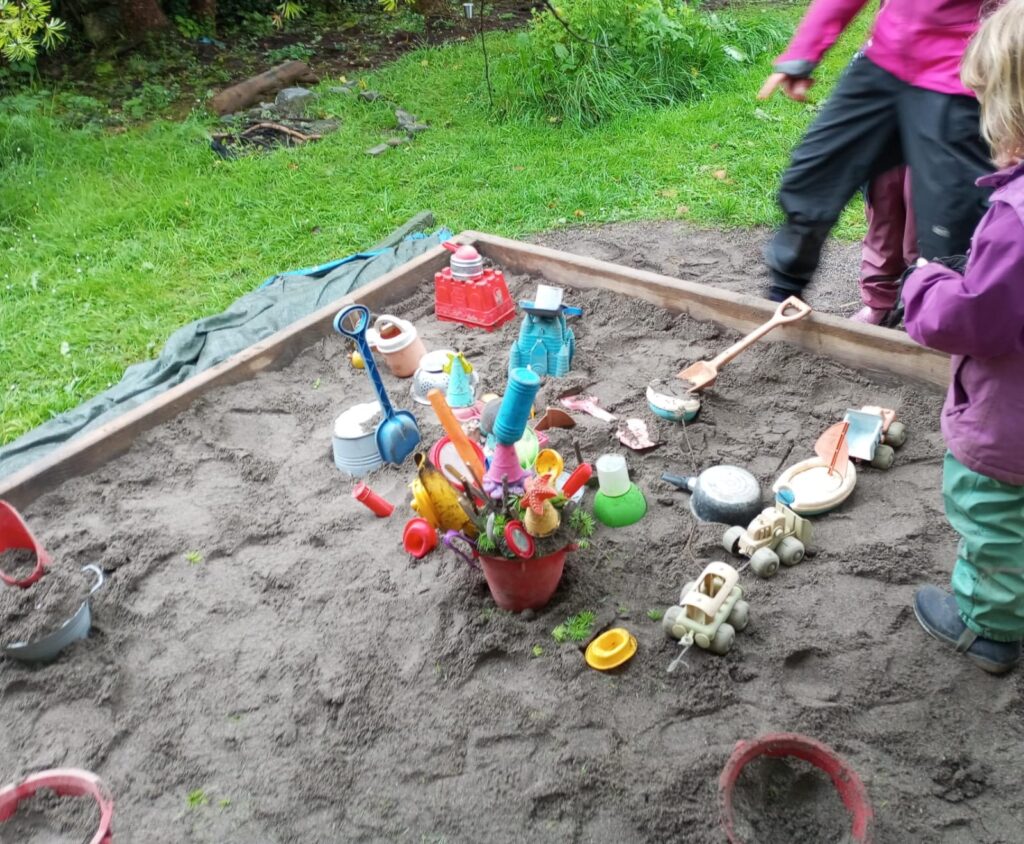
Community Building
Community and togetherness is at the heart of the kindergarten experience. The children develop a strong sense of themselves and the value each member of the community holds. Where “many hands make for light work,” the parents and families play a vital role in the kindergarten community. In following the rhythm of the seasons, the children and their families are encouraged to come together in the form of seasonal festivals and celebrations. Parents also engage in work projects for the kindergarten such as gardening and maintenance, and they help with daily walks. Communication with parents is open and ongoing.
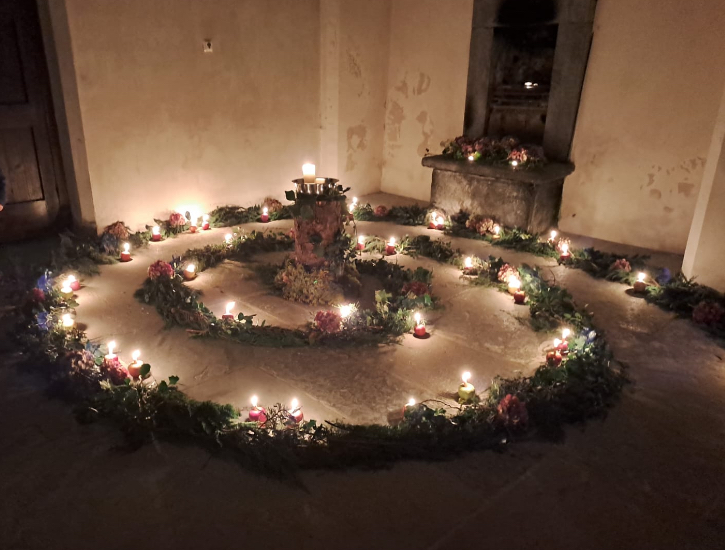
Connection to Nature
Exposure to and interaction with the outdoors develops reverence and wonder for nature. It provides the most natural open-ended play opportunities while connecting children to the rhythm of the seasons and their own place as humans on the planet.
